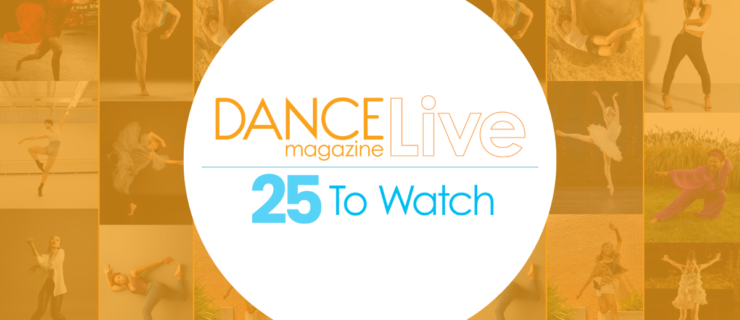Study drugs and dancers
A few summers ago, Matt*, then a college senior, was studying with the Bill T. Jones/Arnie Zane Dance Company in upstate New York. One morning, after staying up too late the previous night, he and a friend each took an Adderall—a stimulant prescribed for people with Attention Deficit Hyperactivity Disorder (ADHD)—to wake up before dancing.
During class, Matt’s heart started racing and soon he was out of breath. But he felt his ability to focus and his attention to detail were heightened. “I was more attuned to subtleties being demonstrated,” he says. “But I didn’t feel connected to the movement. I wasn’t relaxed, so it was hard to give weight and I didn’t feel comfortable supporting someone. It was dangerous.”
Matt got through class—but worried that he’d squandered a rare chance to study with a top-notch choreographer. “Looking back on it now,” he says, “I realize that losing even one day with that company was sad.”
Does this story surprise you? It may not; you and your friends might think that taking unprescribed Adderall or Ritalin is as harmless as drinking a few cups of coffee. And why shouldn’t you? Stimulants allow you to stay awake and get loads done in a concentrated period of time. As a result, they’re becoming a go-to solution for students with heavy workloads, busy schedules or inadequate time management skills. What you may not know, however, is how dangerous stimulant abuse actually is—and that it’s nothing like drinking a few cups of coffee.
Aside from the risk of suffering uneven heartbeats, fainting, increased blood pressure, chest pain, extreme headaches, diarrhea, nausea and decreased libido, guess what the biggest danger is? You could die. DS reports on this untrendiest of college trends.
What are “study drugs” and how common are they?
Adderall, Ritalin and Dexedrine are stimulants prescribed by psychiatrists to treat ADHD, a condition characterized by extreme impulsivity (blurting out answers before a question is asked), inattention (easily distracted, unable to focus) and/or hyperactivity (nonstop fidgeting).
Five to eight percent of school-age kids genuinely suffer from ADHD. “Stimulants allow people with true ADHD to feel more focused and calm and sustain attention longer,” explains Dr. Elizabeth Steinhauer, a psychiatrist at the Student Counseling and Resource Service at the University of Chicago. “They help with social interaction, academic efficiency and accuracy, and they may reduce impulsive aggression.”
Recent studies, however, have shown that up to 35 percent of college students who have not been diagnosed are abusing stimulants in order to study (hence the nickname “study drugs”). A more conservative estimate puts that number between 3 and 10 percent.
Still, if a quarter of American college students have tried a stimulant, you obviously don’t need a prescription to get the drug. “At my school, you can pretty much buy it from anybody,” explains Anne*, a college sophomore. (One pill runs from $2 to $4.) Matt agrees: “If you’re in the library late at night and want some Adderall, spend 20 minutes walking around—you’ll find it.” (Just for the record, selling prescription drugs is illegal.)
Why are students taking study drugs?
Here’s the tricky thing about stimulants: People with ADHD take them to calm down and focus; people who don’t have ADHD take them to wake up and stay alert. In fact, Dr. Richard Kadison wrote in The New England Journal of Medicine that teenagers are beginning to view stimulants (along with antidepressants) as “safe ‘brain steroids’ that help to maximize performance with minimal risk”—even though this is not, in fact, true.
“I thought taking Ritalin was going to be like drinking three cups of coffee,” says Cassie*, a dance and politics double major who took it her junior year to write a 12-page paper during finals. “But it was like having 10 cups of coffee plus some drink that makes you able to concentrate and feel smarter. I typed without pause from 12 a.m. until 7 a.m. and handed the paper in.” But like Matt, who felt he had missed out on a valuable opportunity after dancing on Adderall, Cassie admits, “I got an A, but one week later, I didn’t know what the paper was about.”
For Cassie, taking study drugs was a one-time event born out of desperation: She had five papers due in the same two-day period after a semester full of academic work and dance projects. When it came to writing the last paper, she had run out of steam. “I vowed never to take Ritalin again because it worked so well and I have an addictive personality,” she says. “I thought I could become President on this stuff! It’s not good for an overachiever like me.”
Cassie’s story is not uncommon. Many students get stuck in a crunch during finals, but some users can’t stop after that first drug experience or that first A. That’s when the drug use becomes part of a regular schedule and makes its way into dance class, despite the fact that stimulants will NOT improve your dancing.
For Matt, who also took Adderall for the first time as a last-ditch resort to write a paper, it soon became a weekly ritual: “I was staying up voluntarily because I wanted to get everything done as fast as I could without breaking my concentration,” he explains. Every Monday at 1 a.m., he and his best friend would take an Adderall or Dexedrine, which would keep them up all night. They’d take another at 9 a.m. to get through class.
Despite the fact that it took a few days to recoup and he felt horrible the following day, he didn’t stop: “The reward was sweet. As the semester would wind down and people were writing their papers, I would be like, ‘Well, I finished everything two weeks early; now I can just relax.’”
What are the risks and side effects?
There is no way around this one—Adderall and Ritalin put your heart at risk, which means that by abusing them, you are essentially putting your life in your hands. “One major concern about stimulants is that they can cause sudden cardiovascular death,” explains Dr. Steinhauer. This is why doctors recommend that a careful family history and electrocardiogram (EKG) be performed before initiating the treatment of stimulants for people with ADHD. They should also never be taken without a prescription or psychiatric supervision.
Anne worried about her heart when she took Adderall because “your heart rate goes up,” she says. “I wouldn’t take it before working out because I was really afraid of having a heart attack!” She also complained that, “It makes you really, really anxious. It can make you nauseous and lead to digestive problems, like diarrhea.”
Other than risks to your heart, there’s the inevitable law of gravity—“What goes up must come down”—to contend with. Though study drugs may make the abuser feel euphoric and awake for several hours, coming down can be brutal—and can cause problems in the dance studio the following day. Matt took Adderall on Monday nights because Tuesday was the only day he didn’t have dance class. “When I would pull an all-nighter before dancing, I couldn’t stretch without pain,” he says. “Your joints literally seem dehydrated—I would get charley horses just from flexing my foot.”
Becky*, a sophomore dance and film major who took Adderall in high school but has since stopped, got terrible knots in her back. She didn’t attribute them to her Adderall use until years later, when a friend had the same problem. “My body was breaking down and I wasn’t paying attention,” she says.
The emotional repercussions can be just as difficult to deal with—which may prompt the process to start all over again. “You’re really happy when you take stimulants,” Anne says. “You’re focused and feel pretty much invincible. By the time you come down, you start to feel a little depressed.”
Jenny*, a NYC-based choreographer who took Ritalin in college, agrees: “You feel horrible coming down. All the reasons you’re taking drugs are so amplified. It makes you depressed, so that’s why you want to do more. It’s a vicious cycle.” This is why—and when—people get addicted.
Who is at risk?
Worried you may be in danger? Don’t panic yet. Being overextended or disorganized isn’t necessarily going to lead you to abuse drugs! Instead, ask yourself about your other habits: Are you prone to peer-pressure? Are you likely to do drugs or drink with friends, even if you’re not that into it? Or do you feel comfortable with yourself, regardless of what everyone around you is doing?
“People who are thrill-seeking, impulsive or self-destructive in other ways are likely at higher risk,” says Dr. Steinhauer. She adds, “Anyone with a personal or family history of alcoholism or addiction is also likely at greater risk of abusing amphetamines.”
Jenny, who graduated from college six years ago, is only now beginning to understand why she was so attracted to stimulants in college—and despite what people tell themselves, it doesn’t have much to do with time-management issues. “I don’t think you take stimulants because you don’t have enough time,” she says. “I think it’s because you want to get high and you have an emotional problem that you’re suppressing.” Why did it take graduating from college for Jenny to get in touch with the real problem? “I didn’t have anyone to talk to,” she says. “It’s hard to talk to an 18-year-old about this because they aren’t willing to look at it yet. That reflective stage comes after college.”
Time management, plus…
College may be the first time you’ve had to manage everything in your life, from scheduling classes to juggling multiple papers to getting to work—not to mention rehearsals! We can’t stress it enough: There is absolutely no replacement for managing your time, because guess what? You can’t do it all at the last minute.
“Know that you have to work and you have to sleep,” Becky says. “If you’re tired, take a nap for an hour and drink a cup of green tea. Don’t procrastinate. If you keep yourself organized, you shouldn’t feel overwhelmed by everything.”
While this is sound advice, remember that time management may not be at the root of the problem, and that taking stimulants without a prescription or medical supervision is extremely dangerous. If you think you may be self-medicating—taking drugs recreationally to mask emotional troubles like depression or anxiety—it’s time to see a therapist.



